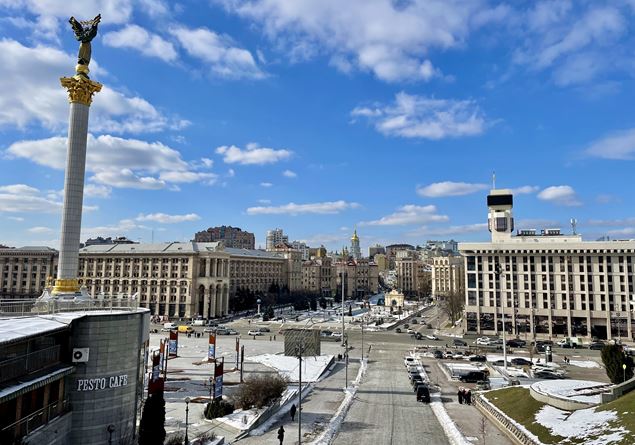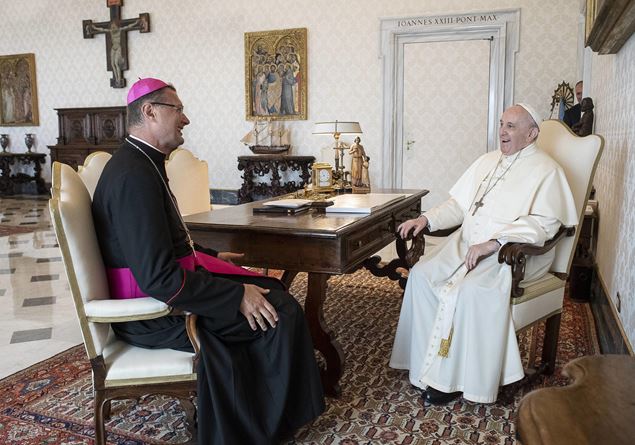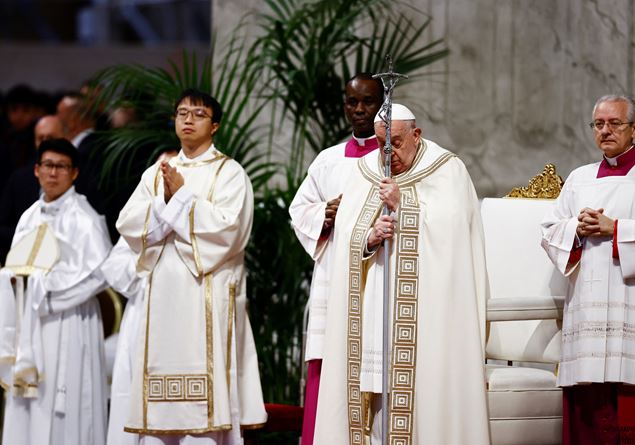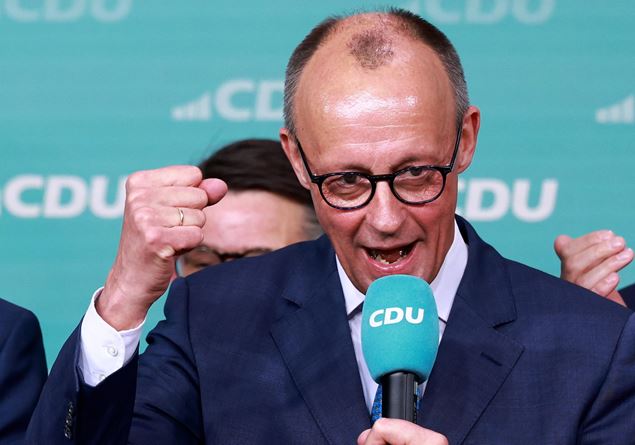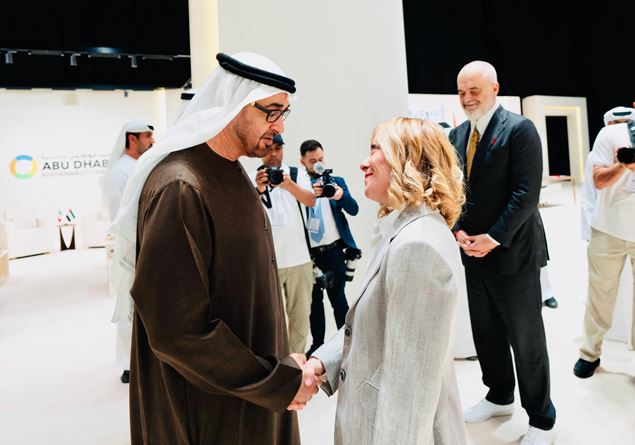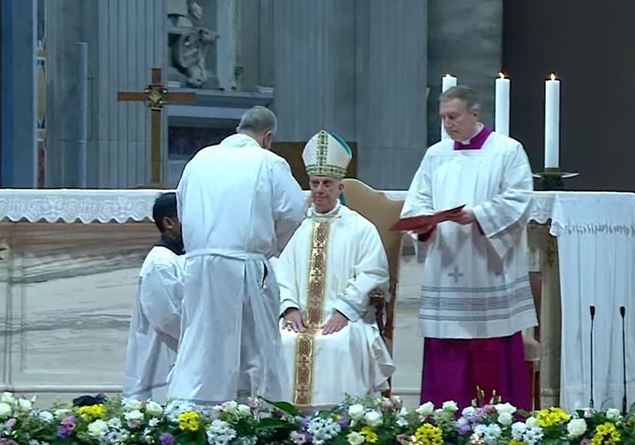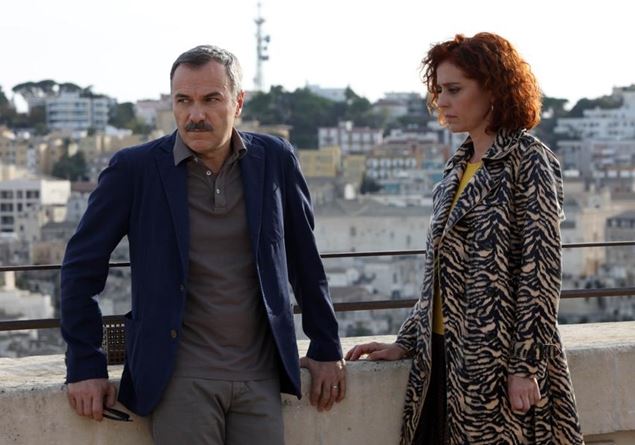«If we look around, disturbing questions may arise within us. What about wars, violence, ecological disasters? And what to think of the problems that you too, dear young people, have to face, looking to the future: the precariousness of work, economic uncertainty and beyond, the divisions and disparities that polarize society? Why does all this happen? And what can we do to avoid being crushed by it?”.
These are the questions addressed to young people by Pope Francis during the homily of the Mass celebrated in St. Peter’s Basilica on the occasion of World Youth Day which is celebrated, as every year, in all the dioceses of the world on the solemnity of Christ the King, the last Sunday of the liturgical year. A date desired by Pope Francis while in the past the WYD at diocesan level was celebrated on Palm Sunday.
«These are difficult but important questions», said the Pontiff who proposed that the young people reflect on three aspects, «who can help us proceed with courage on our journey, through the challenges we encounter: accusations, consensus and the truth».
Francis addresses the young people directly: «Dear young people, perhaps sometimes you too can be put “under accusation” for following Jesus. At school, among friends, in the environments you frequent, there may be those who want to make you feel wrong because you are faithful to the Gospel and its values, because you don’t conform, you don’t bend to do like everyone else. You, however, do not be afraid of “condemnations”, do not worry: sooner or later the criticisms and false accusations fall away and the superficial values that support them are revealed for what they are, illusions. Dear young people, be careful not to let yourselves get intoxicated by illusions: be concrete, reality is concrete.”
What remains, the Pope recalls, «is something else: they are the works of love. This is what remains and what makes life beautiful! The rest doesn’t matter. Therefore, I repeat: do not be afraid of the “condemnations” of the world. Keep loving!».
The Pope then focused on the aspect of “consensus”, inviting young people not to let themselves be infected “by the desire that is so widespread today to be seen, approved and praised. Those who allow themselves to be caught up in these fixations end up living in trouble. It boils down to “elbowing”, competing, pretending, compromisingselling out one’s ideals just to get some approval and visibility. But God loves you just as you are: before Him your pure dreams are worth more than success and fame, and the sincerity of your intentions is worth more than consensus.”
For this reason the Pope sent the young people not to allow themselves to be “deceived by those who, by enticing you with futile promises, in reality only want to exploit you, influence you and use you for their own interests. Don’t settle for being “stars for a day”, on social media or in any other context! In short, “It is not consensus that saves the world, nor that makes us happy, but the gratuitousness of love.”
Finally, regarding the truth, Francis indicated the risk of remaining “prisoners of a great lie: that of the self-sufficient self, the root of all injustice and unhappiness”. And also, as the blessed Pier Giorgio Frassati, next saint, to no longer live, but to “get by”. We want to live, not get by, and therefore we strive to bear witness to the truth in charity, loving each other as Jesus loved us», stated the Pope, according to whom «it is not true that history is made by the violent, the bullies, the proud. Many evils that afflict us are the work of man, deception by the Evil One, but everything is subjected, in the end, to the judgment of Christ, the just and merciful King. The Lord leaves us free, but does not leave us alone: even though he corrects us when we fall, he never stops loving us and, if we want, lifting us up again, so that we can joyfully resume our journey.”
Then, speaking off the cuff, the Pope added: «Those who destroy people, who wage wars, what will their faces look like when they present themselves before the Lord? “Why did you fight that war? Why did you kill?” And what will they answer? Let’s think about this. To us too: we don’t wage war, we don’t kill, but “I did this, this, this”, and when the Lord tells us “why did you do this? Why were you unfair in this? Why did you spend this money in your vanity?” The Lord will ask these things of us too.” At the end of the homily, Francis recalled a typical sign of this Day, the passing of symbols from the Portuguese youth, where the last world meeting took place last year in Lisbon, and the Korean ones, where it will take place, in Seoul , the next WYD, in 2027: «At the end of this Eucharist, the young Portuguese will entrust the symbols of World Youth Day to the young Koreans: the Cross and the Icon of Maria Salus Populi Romans”, the words of the Pope, “this too is a sign: an invitation for all of us to live and bring the Gospel to every part of the earth, without stopping and without becoming discouraged, getting up after every fall and never stopping hoping. Thus, even in difficulties, we will find the strength to move forward, without fear of accusations, without the need for consensus, with our own dignity, without making compromises, happy to be witnesses of the truth for everyone, in love.”
Concelebrating with the Pontiff were around 275 cardinals, bishops and priests. At the end of the Eucharistic celebration, the traditional passage of the gods took place symbols of World Youth Day, starting their pilgrimage towards Seoul 2027. The Youth Cross and the Icon of Mary Salus Populi Romani were handed over by a delegation of Portuguese youth to a delegation of Korean youth, accompanied by their pastors.
Young Koreans will thus be able to start the pilgrimage of the symbols in Korea and various Asian countries, taking them everywhere – in the cities, in the countryside, among the suffering, the prisoners, the poor, with particular reference to young people without hope – to bring closeness and consolation to everyone. This pilgrimage is particularly significant since it will take place in predominantly non-Christian countries.
The Cross was entrusted to the young people by Saint John Paul II on the occasion of the first youth gathering, in 1984, forty years ago. At the end of the Holy Year of the Redemption, after closing the Holy Door, Pope Wojtyla handed over the Cross to the youth of the world with these words: «Bring it to the world, as a sign of the love of the Lord Jesus for humanity and announce to everyone that only in the dead and risen Christ is there salvation and redemption».
Since 2003, the Cross has been accompanied by the icon of Maria Salus Populi Romani, a sign of Mary’s maternal tenderness and of the Church’s own motherhood for all humanity.
